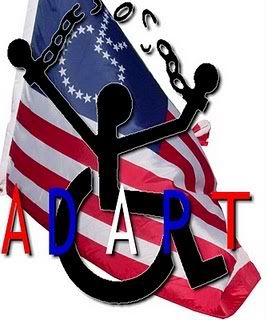ECT ruins lives. Where/how do you submit comments? Can anyone figure that out? From baltimoresun.com
Psychiatrists Change Their Recommendation for Depression's Treatment
The American Psychiatric Assn., which labored to bring forth a revision of psychiatry’s “Bible” earlier this year, has just released a more modest opus likely to generate much discussion among mental health professionals.
With the release on Friday of its “Practice Guideline for Treatment of Patients with Major Depressive Disorder,” the nation’s leading psychiatric association makes a number of subtle adjustments to its past treatises on depression and its treatment. The new guideline is the first comprehensive update of the organization's guidelines for depression treatment since 2000.
For starters, the APA throws its considerable weight behind the rehabilitation of electro-convulsive therapy (a.k.a. “shock therapy”) as an effective recourse for those who fail to respond to antidepressant treatment. [emphasis mine]
The practice guideline ventures to say that for many patients with chronic or recurrent episodes of depression, “maintenance therapy”—including antidepressant medication and possibly ongoing psychotherapy—may need to continue “indefinitely.”
The guideline reveals a rift between the group drafting the document and the broader “Steering Committee” of psychiatrists on the value of psychodynamic therapy —an often-lengthy series of talk therapy sessions in which patient and therapist probe early-life experiences for the sources of negative thought patterns. While the authors of the guideline would have given psychodynamic therapy an extremely tepid endorsement as an effective depression treatment, the broader board of psychiatrists elected to recommend it “with moderate clinical confidence.” (Both recommended cognitive behavioral therapy without reservations.)
Finally, the association in its latest update bows to the “at least modest” value of physical activity — either aerobic or strength exercises -- in relieving symptoms of mood disturbance, and possibly in preventing depression.
The authors of the practice guideline also engaged in a level of self-disclosure that is new for many psychiatrists. The guideline opens with two pages detailing the extensive ties of those who drafted the document with the pharmaceutical industry. Of the work group’s seven members, all but one declared that he or she received research support, consulting payments, speaking fees or author’s honoraria from several firms developing, manufacturing or marketing psychiatric drugs.
The American Psychiatric Assn. sought to counter any appearance of undue pharmaceutical-industry influence by establishing an “Independent Review Panel,” whose five members were free of any direct financial ties to drug companies, and were charged with “identifying any possible bias.” That panel, the APA reports, “found no evidence of bias.”
--Melissa Healy/Los Angeles Times

















0 comments:
Post a Comment